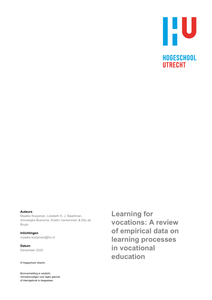Thinking back and forth between observing physical phenomena and developing scientific ideas, also known as hands-on and minds-on learning, is essential for the development of scientific reasoning in primary science education. In the Netherlands, inquiry-based learning is advocated as the preferred teaching method. However, most teachers lack time and sufficient pedagogical content knowledge to adequately provide the teaching required for this. To address this problem, we designed and evaluated science and technology lessons, consisting of hands-on experiments combined with interactive diagrams, aimed at scaffolding primary school students (9–12 years) in the development of their scientific reasoning. Our proof-of-concept uses an online application, that lets students work through the lessons while alternating hands-on and minds-on activities. A study was carried out (n = 490) showing that most students successfully complete the lessons within a standard lesson timeframe. The approach enables students to effectively apply several types of scientific reasoning and to do so more autonomously than in traditional science classes.
DOCUMENT

Building on the Minds-On project, this study developed the online module “Celestial Bodies” to enhance hands-on and minds-on learning, providing students with individualised feedback prompts to monitor and identify weaknesses in their understanding. The lesson centred on classifying 14 celestial bodies based on three properties, with the guidance of the online module and a map and cards. This study aimed to (1) enhance student engagement with the software, and (2) asses the impact of guided instructions and feedback prompts. We introduce our interactive lesson, present findings, and discuss their benefits in upper primary education classes to enhance student engagement, concept learning, emphasising enhanced integration of minds-on and hands-on activities.
MULTIFILE
Practical work provides the opportunity for students to make a connection between hands-on activities and minds-on concepts. In this study, lesson design principles were investigated for stimulating Thinking-Back-and-Forth (TBF) between hands-on and minds-on aspects. Nine practical lessons intended to stimulate minds-on learning experiences were designed. These lessons contained an assignment and guidance aimed at stimulating TBF and mitigation of the cognitive load of hands-on aspects. Student learner reports were evaluated for reported minds-on learning, and the lessons were video-recorded. Results show that the design principles stimulate minds-on learning. Therefore, educational practice can benefit from using the design principles described.
MULTIFILE
This article reports on a literature review on empirical research investigating learning for vocations in the context of vocational education. We included 36 studies in which learning for vocations is empirically studied. Learning for vocations is characterised based upon prevalent research traditions in the field and framed from the perspective of vocational education and organised learning practices. This framing and characterisation directed the search terms for the review. Results show empirical data on vocational learning and illustrate how learning processes for the functions of vocational education - vocational identity development, development of a vocational repertoire of actions, and vocational knowledge development - actually take place. The review further shows that, empirical illustrations of learning processes that occur in the context of vocational education and organised learning practices are relatively scarce. The findings can be typified in relation to our theoretical framework in terms of three learning processes, that is learning as a process of (a) belonging, becoming, and being, (b) recontextualization, and (c) negotiation of meaning and sense-making. We argue that more empirical research should be carried out, using the functions of vocational education and the three learning processes to better understand vocational learning.
DOCUMENT

Blended learning is not a flash in the pan, it’s here to stay. At The Hague University of Applied Sciences (THUAS) the implementation of blended learning is not yet in an adult stage, but in a newly introduced educational framework (The Hague University of Applied Sciences, 2017) blended learning plays a vital role. The intention is for teams to come to a shared approach when it comes to blended learning. In his blog, Leonard Geluk, (Geluk, 2016) the Chairman of the Executive Board of the University notes that ‘the development is slow to get off the ground’ and ‘there is still work to be done before we can fully embed ICT in education.’ The toolkit of teachers has been supplemented with many digital tools in recent decades (Geluk, 2014), but what makes lecturers actually use these new possibilities? What causes them to pick up the toolkit or leave it? Jacobs (2013) indicates that people’s ability to exploit the benefits of technology, in particular digital technology, is not obvious and can be a big challenge, especially for teachers. The central question to this study is: What brings lecturers in motion around blended learning? In my opinion, gaining more understanding in the lecturers’ perspective is an important part of the ‘work’ that Leonard Geluk describes above. This is the main goal of this research.
DOCUMENT

The workforce in the EU is ageing, and this requires investment in older workers so that the organisations in which they work remain competitive and viable. One such investment takes the form of organising and facilitating intergenerational learning: learning between and among generations that can lead to lifelong learning, innovation and organisational development. However, successfully implementing intergenerational learning is complex and depends on various factors at different levels within the organisation. This multidisciplinary literature review encompasses work from the fields of cognitive psychology, occupational health, educational science, human resource development and organisational science and results in a framework that organisations can use to understand how they can create the conditions needed to ensure that the potential of their ageing workforce is tapped effectively and efficiently. Although not a comprehensive review, this chapter serves as a basis for further empirical research and gives practitioners an insight into solving a growing problem.
DOCUMENT

The main focus of this article is on performance anxiety and stage fright in musicians, seen through the lens of biographical research. In short, biographical research deals with research into learning, taking as point of departure that important learning always needs to be understood in relation to the biography of the learner (Alheit 2009, p. 116). Within biographical learning people can act as their own change agents. This article discusses biographical findings on musicians’ generic leadership when coping with profession-related health issues and the transformative and transitional learning evolving from this.
DOCUMENT
Learning theories broadly characterised as constructivist, agree on the importance to learning of the environment, but differ on what exactly it is that constitutes this importance. Accordingly, they also differ on the educational consequences to be drawn from the theoretical perspective. Cognitive constructivism focuses on the active role of the learner, and on real-life learning. Social-learning theories, comprising the socio-historical, socio-cultural theories as well as the situated-learning and community-of-practice approaches, emphasise learning as being a process within and a product of the social context. Critical-learning theory stresses that this social context is a man-made construction, which should be approached critically and transformed in order to create a better world. We propose to view these different approaches as contributions to our understanding of the learning-environment relationship, and their educational impact as questions to be addressed to educational contexts.
DOCUMENT
Worldwide, pupils with migrant backgrounds do not participate in school STEM subjects as successfully as their peers. Migrant pupils’ subject-specific language proficiency lags behind, which hinders participation and learning. Primary teachers experience difficulty in teaching STEM as well as promoting required language development. This study investigates how a professional development program (PDP) focusing on inclusive STEM teaching can promote teacher learning of language-promoting strategies (promoting interaction, scaffolding language and using multilingual resources). Participants were five case study teachers in multilingual schools in the Netherlands (N = 2), Sweden (N = 1) and Norway (N = 2), who taught in primary classrooms with migrant pupils. The PDP focused on three STEM units (sound, maintenance, plant growth) and language-promoting strategies. To trace teachers’ learning, three interviews were conducted with each of the five teachers (one after each unit). The teachers also filled in digital logs (one after each unit). The interviews showed positive changes in teachers’ awareness, beliefs and attitudes towards language-supporting strategies. However, changes in practice and intentions for practice were reported to a lesser extent. This study shows that a PDP can be an effective starting point for teacher learning regarding inclusive STEM teaching. It also illuminates possible enablers (e.g., fostering language awareness) or hinderers (e.g., teachers’ limited STEM knowledge) to be considered in future PDP design.
LINK
Context When the pandemic hit the world, teachers were forced to change their education from onsite to virtual overnight Understandably, teaching quality decreased in the beginning, as there was little experience in how to adapt the educational design Zuyd University of Applied Sciences ( recognized the problem that teachers were on different didactic and pedagogical levels when it comes to online education Unfortunately, the pandemic made it hard for teachers to connect with each other In the Domain of Health and Welfare, this led to the idea of establishing a professional learning community A professional learning community ( can be seen as an informal group of people who share knowledge and experiences among each other on a common topic they are all highly interested in Zuyd’s vision “passion for development” sets a good basis for the start of such a community. Steps we took In order to find out how a professional learning community can look like in Zuyd, the following steps were taken Firstly, we collected and evaluated literature and best practices around the topic Based on our findings we developed an interview guideline and conducted interviews with eight teachers from the Domain of Health and Welfare Throughout the whole report a SWOT analysis was performed with the literature and best practices filling opportunities and threats and the interviews providing content for strengths and weaknesses Main findings From these sources, we derived enablers for a successful learning community, which led to recommendations for Zuyd on how to strategically position, implement and organize a PLC One of our major recommendations is to make didactic and pedagogical skills an important topic within Zuyd in order to strategically implement the learning community into Zuyd’s strategy Furthermore, we recommend giving the lead in organizing and facilitating the PLC to the blended learning task force To collect a diverse set of interested employees to the core group, the educational managers should personally approach teachers that might be interested The sense of urgency around the topic needs to be addressed regularly through the directors of the Domain, the task force of blended learning, as well as the PLC itself In this way, interest in the topic of didactic and pedagogical skills and blended learning can be enhanced In the report we go into greater detail on how to organize and apply these recommendations. We are convinced that implementing these steps will pay off in the future and will successfully enhance competencies on blended learning and didactic and pedagogical skills through knowledge exchange.
DOCUMENT
